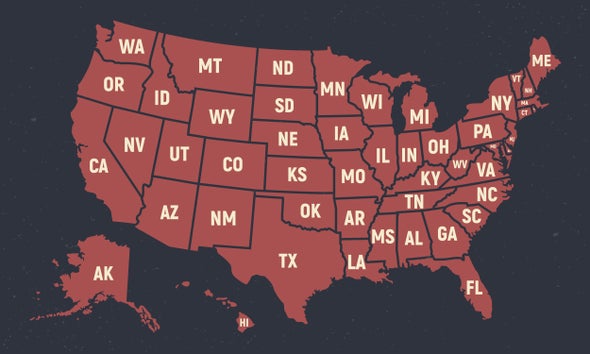This is Scientific American's 60-second Science, I'm Christopher Intagliata.
Remember Crystal Pepsi?
[CLIP: Crystal Pepsi ad]
It debuted in the early '90s, to a soundtrack of Van Halen. But if you're blanking, don't feel bad. Because Crystal Pepsi disappeared—just a few years after it debuted.
But presumably the soft drink had some fans. Previous research found that people who buy products destined to fail—like Crystal Pepsi—also buy other duds.
"So every time we look, yeah, these people would be doing things were different than their neighboring ZIP codes."
Duncan Simester is an economist at M.I.T. He and his colleagues call these people "harbingers of failure"—because they tend to buy products that flop. Now they find that those harbingers tend to cluster in the same zip codes.
They made the discovery by tracking the purchasing habits of customers at a mass merchandise chain—think Walmart or Target. And they found that certain customers kept buying products most other people didn't want. In a follow-up experiment, they found that those people also tended to purchase more unpopular, niche items at a clothing retailer. But it goes further. These same people bought homes that appreciated less than other homes. And what's more, they were more likely to support political candidates who lost. All of which indicates that these people—who, based on zip codes, also tend to live near each other—consistently pick losers.
The results are in the Journal of Marketing Research.

Unfortunately, the researchers won't reveal which zip codes are the ones in question. But the neighborhoods tend to be suburban, with lower household income, less educated residents and more single parents. People there also use a lot of coupons, and more of them are white than are the residents of other zip codes.
As to why these zip codes pick losing candidates or products? It's possible they're just not as engaged as other consumers.
"One of the things we looked at is: Are these people less likely to write product reviews? The answer is yes. If they write reviews, do they tend to be shorter reviews? And the answer is yes."
Of course, retailers could learn from this when test-marketing new products. Rather than looking at how many units sell, it might be more useful to see if the people buying the product consistently see their picks go belly-up.
[CLIP: Indiana Jones and the Last Crusade ("He chose poorly").]
Thanks for listening for Scientific American's 60-second Science. I'm Christopher Intagliata.












